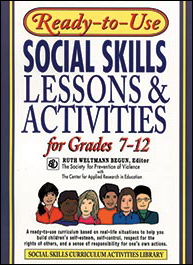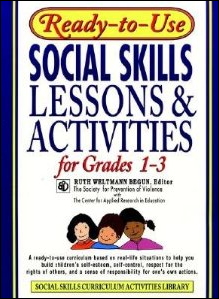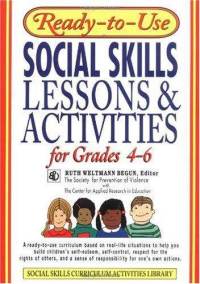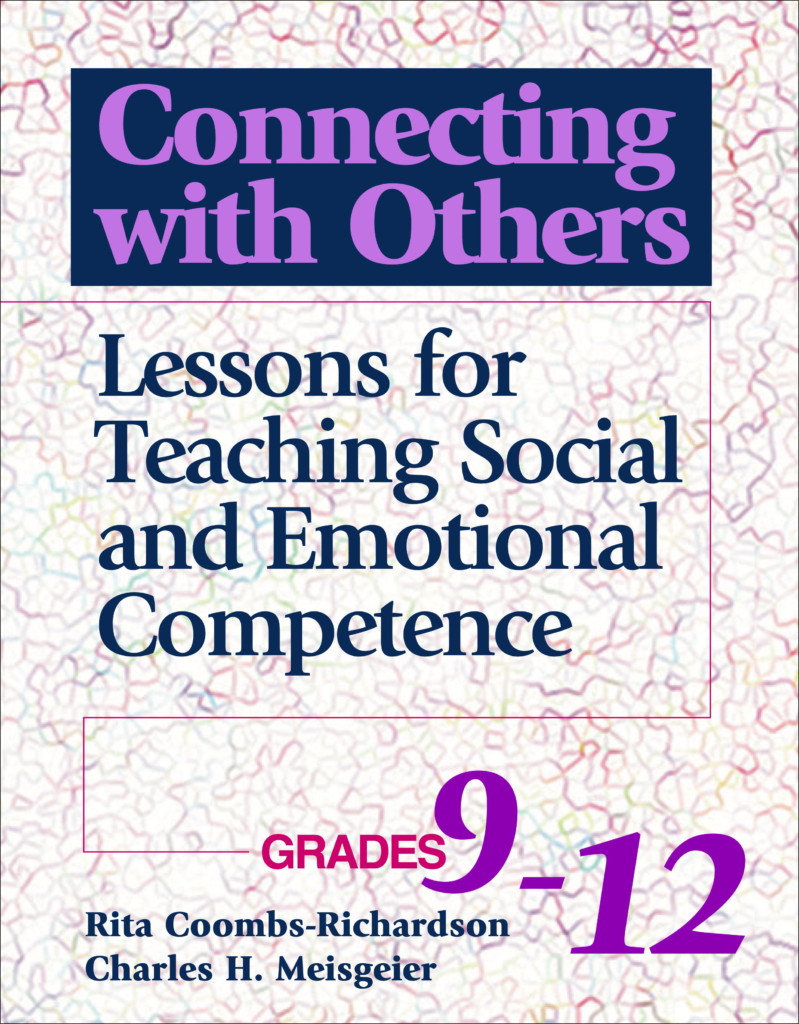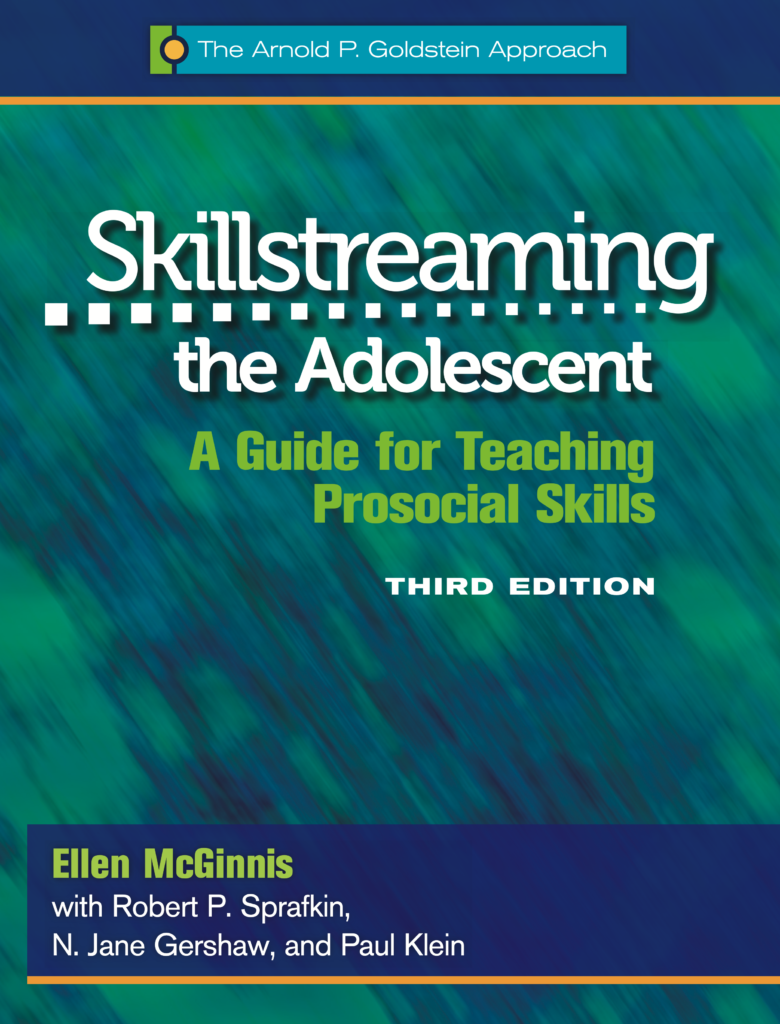Teens need to learn certain social skills to be successful in school and out. This three-volume series is designed for teaching positive behavior skills to students of all ability levels.
Each volume includes over 50 classroom-tested lessons and activities that emphasize helping young people to recognize the equal rights of others and to develop their skills in using good judgment to resolve everyday conflicts.
The program gives teachers and specialists a stimulating, systematic way to develop positive social behaviors in students through awareness, discussion, and rehearsing new behaviors. Students learn skills such as sharing, listening, dealing with anger, setting goals, building self-confidence, and dealing with prejudice.
Each lesson covers:
- Purpose—need for teaching/learning the social skill, e.g., “Using Self-Control;”
- Introduction—stories, videos, poems, and questions to make the skill concrete;
- Skill Components– skill steps for teaching the appropriate behavior;
- Modeling the Skill teacher and/or student demonstration of the skill;
- Behavioral Rehearsal—student performance of the skill with teacher correction if necessary;
- Practice—worksheets and other activities summarizing the skill;
- Independent Use—activities to promote use of the skill outside of school;
- Continuation—suggestions for reinforcing the skill through the school year.
Includes numerous student handouts and a section for parents that contains social skills training activities for use at home.

